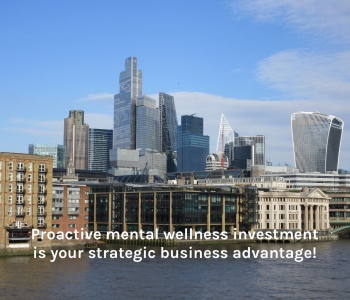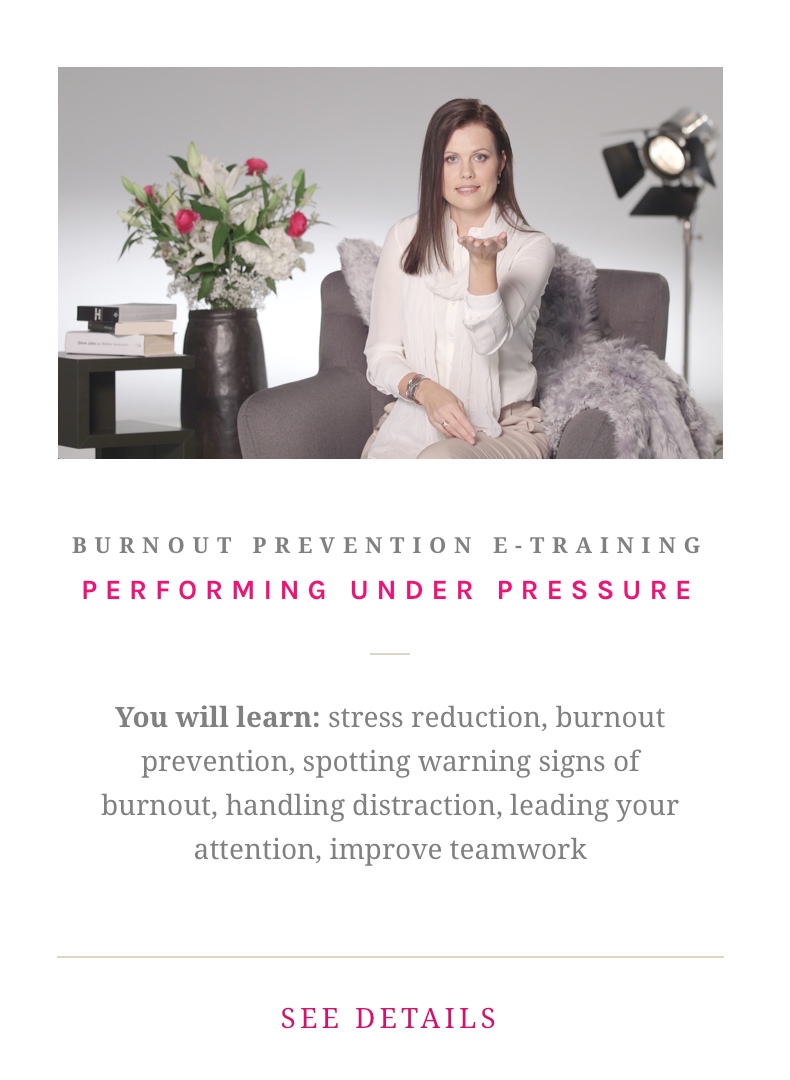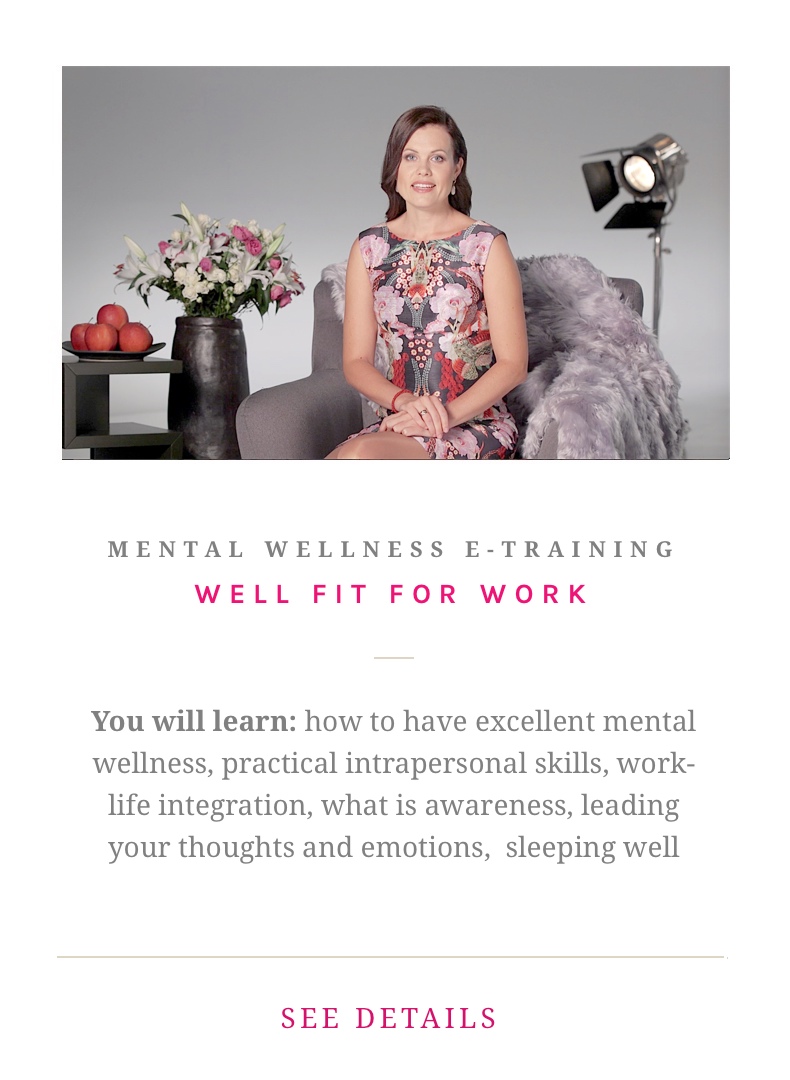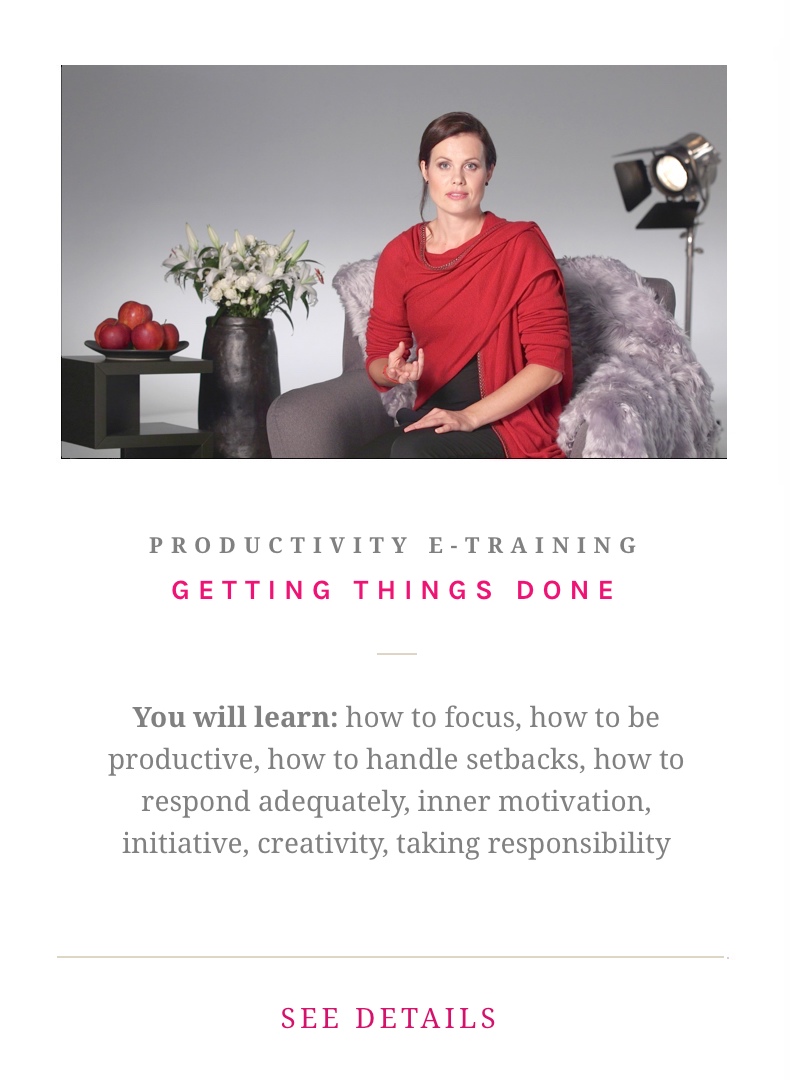Proactive Mental Wellness Investment Is Your Strategic Business Advantage
In many organizations today, the challenges faced by business leaders and HR professionals have grown more nuanced. Their concerns go beyond the usual metrics like recruitment numbers or quarterly performance. What increasingly occupies their attention is the mental and emotional state of their workforce. The often-unnoticed inner pressures affect focus, collaboration, and the long-term capacity of employees to lead and perform.
These concerns center around people and their inner power to work well. While professional skills and deliverables still matter, mental strength and personal sustainability are now more important, as 9 out of 10 are stressed, as we opened up in one of our most recent blogs.
As organizations navigate rapid change, economic uncertainty, and increasing pressure to innovate, one truth is becoming increasingly clear: your company’s future depends on the mental fitness of your people.
Fortunately, there is a strategic path forward and it begins with shifting from a reactive mindset to a proactive approach to mental wellness and personal resilience.
Training the mind, just like developing leadership or technical capabilities, is now an essential business priority.
Those HR and business leaders who have noticed this can unleash more inner power and ensure that people will stay loyal and keep working for them.
The Unspoken Fears Leaders Carry
We noticed six major concerns consistently surface in conversations with business executives and HR leaders across industries.
First, there is the fear of burnout and mental health decline. Leaders are acutely aware that extended periods of pressure without proper recovery lead to emotional exhaustion, disengagement, and ultimately, attrition. This isn't just a well-being issue because it is a serious risk to business continuity and team morale.
Second, many worry about quiet quitting and disengagement. Just 21% of employees are engaged and 17% are actively disengaged at work across the globe, according to the 2025 Gallup study (see the image below). People who are stressed can't be engaged and take initiative as we mentioned in our last blog.

Employees may appear present, but 79% of them have mentally and emotionally checked out. Their inner turmoil and problems leave them unable to notice what needs to be done. Thus, initiative and morale are often low.
When you worry and feel stressed and are nearing burnout, you stop going the extra mile, lose access to creativity, and begin to see your role as transactional rather than meaningful. This slow erosion of commitment is often invisible until performance dips become noticeable.
Third, the fear of losing top talent is ever-present. According to the MCR Workforce article, “A mid-level employee turnover costs between 125% and 150% of their annual salary to replace,“ and „A high-level or highly specialized employee costs approximately 400% of their annual salary to replace.“
The departure of a valued team member can negatively affect the morale of remaining employees and lead to a "domino effect" of further resignations.
High performers are often the most at risk of burnout and disillusionment. It’s equally important to notice that overworked employees covering the responsibilities of those who left may experience burnout.
When you don’t feel psychologically safe or mentally supported at work, you start looking around for another job. The current culture of well-being often addresses physical health proactively, but fails to do so with mental wellness.
People actually seek environments that offer purpose and growth. The mental clarity and wellbeing of leaders matter here.
If you, as an HR manager or leader, are stressed, you fail to notice the needs of your team. Also, if you are unwell and see everything as a fight, you don’t have time for visions, aware listening (read the UK HR Magazine article on the topic) and noticing.
Take 1,5 minutes and listen to our Managing Director, Kaur Lass.
Fourth, leaders are increasingly concerned about low adaptability and resistance to change. As organizations adopt new technologies, processes, and strategies, they need employees with mental flexibility and resilience. Otherwise, it is hard to remain competitive in this new AI era.
However, many individuals struggle to stay centered during periods of uncertainty and complexity, creating friction that slows progress. Change in our external world and within our minds is constant; this is something that people fail to notice.
Managing change and knowing your inner domain matter here.
You, as your True Self and a conscious human being, can be stable, but people don’t know this, as they have had no intrapersonal education. Thus, they have no intrapersonal skills and act reactively, instead of making conscious decisions.
Fifth, there is too often the issue of toxic behaviors and poor team dynamics. When people operate under sustained stress without tools for self-regulation, inner pressures surface in harmful ways.
Fear, stress, and anxiousness lead to defensiveness and fights. When such inner reactivity meets poor communication and emotional volatility, things easily go out of hand. This damages collaboration, trust, and the very culture leaders work hard to build.
Poor team dynamics often lead to project delays, quality issues, and decreased customer satisfaction, resulting in increased operational costs. In a 2023 Oak Engage Toxic Workplace Report of over 2,000 employees across industries, 75% reported experiencing a toxic workplace culture and said it had a direct impact on their mental health and burnout risk.

Finally, there is growing concern about skills gaps, particularly in soft skills and mental agility. Technical or professional training alone isn’t enough.
Leaders recognize the need for team members who can think critically, lead their thoughts and emotions, and make rational and conscious decisions under pressure. Without this mental foundation, even skilled professionals struggle to thrive in dynamic environments.
The Shift: From Risk Management to Resilience Building
While these concerns are real, they are not insurmountable.
The turning point lies in taking a proactive, structured, and health-centric approach to mental wellness. Most of those challenges can be solved when people learn awareness-based intrapersonal skills.
When organizations embed workplace-wide mind health training into their leadership and employee development efforts, they create a workforce that doesn’t just survive stress but uses it to grow.
Employees who train their minds proactively learn how to remain calm, think more purposefully, notice opportunities more clearly and become focused. When intrapersonal skills are excellent, this can be achieved even in high-pressure situations.
This is a practical, measurable and transformative approach that works and brings tenfold ROI. That is why we have made it systematic and easy to use. It has been a ten-year effort to come up with a new proactive mental wellness approach that leaves people more relaxed and capable.
|
By introducing intrapersonal skills-based stress reduction techniques as part of professional and individual development, workplaces equip their people with the skills to respond consciously instead of reacting automatically.
It is the reduction of negative habits and inner reactions that allows people to recover from mental fatigue, stress and avoid burnout. This approach we offer is solid and delivers results as it is founded upon learning and then practicing awareness-based intrapersonal skills.
Practical intrapersonal skills that can be learned, practiced, and integrated into daily work routines by anyone.
Equally important is cultivating a culture of self-leadership, where individuals understand that valuing their own mental wellness is essential.
People who take care of their mental fitness are more likely to respect others, manage boundaries, stay solution-focused, and communicate with clarity. They become internal leaders regardless of title and, therefore, can be strong contributors to a resilient organizational culture.
The benefits extend directly to performance. A mentally fit employee makes better decisions, stays adaptable during change, and handles complexity with more agility. These become business-critical capacities in today’s volatile economic situation and amid innovation-related and regulatory challenges.
Mental Wellness Is a Strategic Imperative
Claudio Gienal, Chief Transformation Officer for AXA European Markets and Health, states in the AXA 2025 Mind Health Report: “Taking care of our Mental Health starts with us. The world around us can be tough, but we all have the potential to keep our mind healthy, and it’s our personal responsibility to put in the necessary work and self-discipline. Sticking to regular routines, making thoughtful decisions, and actively taking care of ourselves can help us draw on our inner strength.“
He emphasizes that „An approach rooted in self-empowerment and personal accountability puts us in the driver’s seat of our mental well-being while recognizing that professional guidance can provide the necessary tools and support to navigate difficult situations. The journey towards mental well-being can be challenging, but it’s within reach for everyone who is willing to undertake it with determination and consistency.”

According to the Mind Your Health report, „25% of people are potentially affected by anxiety, stress, or depression at severe or more extreme levels, vs. 23% in 2023.“
As the report puts it, “Perhaps the biggest 'work on' from the AXA Mind Health Index is the higher rates of mental health problems reported by young adults in comparison to older generations. The results suggest that young adults are disproportionately affected by severe or extreme levels of anxiety, stress or depression.“
The report found that 44% of young adults are currently suffering from a mental health condition compared to 25% in the general population.
As we recognize Mental Health Awareness Month (or Week as in the UK or Canada), business leaders have an opportunity and a responsibility to do more than just acknowledge the issue. It’s time to act on it ASAP. That is the only way to keep your talent and see employee engagement levels go up!
Ask yourself:
- Is a systematic, proactive mental wellness approach integrated into your talent strategy?
- Are your managers and teams trained not only in processes and tools but also in thinking well, staying healthy and showing up with mental clarity?
- Have you built systems that support mind health the same way you support physical safety or operational efficiency?
Conclusion
The proactive mental wellness approach that is workplace-wide is a solid future-proofing strategy. Organizations that embrace this shift will be the ones that retain talent, outperform competitors, and create cultures where people thrive, not just endure.
Leadership longevity and workplace sustainability are created through consistent, intentional practices that support the full health of your people. And it starts with training the mind.
Having a calm and fit mind isn't just the best mental wellness investment that you can make; it is the best employee engagement and health solution with tenfold ROI.
|

This Mental Health Month / Mental Health Week blog post is contributed by Kaur Lass





